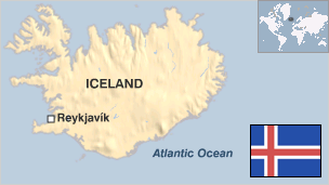
Facts and stats about Iceland
Iceland is a thinly -populated island in the North Atlantic island which has become famous for hot springs, geysers and active volcanoes. The country became an independent republic in 1944 and turned out to become one of the world's most flourishing economies. Unfortunately, the financial collapse in 2008 showed that its prosperity was built on a weak economic model.
The crisis hit Iceland harder than other countries in the continent because the entire banking system failed to pay and crashed. Attempts to bail out private banks failed. The government was unable to resolve this monetary collapse. The people took to the streets as a sign of national protest and forced the entire (center-left) government to resign. They formed a citizen’s group that wrote the new constitution proposing solutions to prevent corporate greed from destroying the country. All these events were recorded by international journalists, foreign news bureaus, private citizens, and social media bloggers.
At present, Iceland’s stock market still struggles to keep up with the nation’s buoyant economy as initial public offerings continue to lag behind global trends. The economy went up by 3.8 percent in the fourth quarter of last year compared to only 0.3 percent in the whole European area. All in all, economic foundations remain robust and moving towards revitalization with multilateral aid provided by the International Monetary Fund. It has ample marine resources, clean energy, sturdy infrastructure, and knowledgeable workforce.
Foreign investments are focused on export-oriented industries. However, there are also expected ventures in the fields of agriculture, information technology, water-based industries, energy, and tourism. The government is now composed of a coalition between the Independence and Progressive parties. It is still holding talks regarding the decision to seek membership in the European Union which is being opposed by different sectors of the nation.
- Agriculture 101
- Background 9
- Conflict 4
- Cost of living 53
- Crime 98
- Culture 31
- Disasters 2
- Economy 2608
- Education 456
- Energy 668
- Environment 226
- Geography 83
- Government 203
- Health 314
- Import 6
315,281
Population. Ranked 179th in 2013.
$42,658.40
GDP per capita. Ranked 17th in 2012.

100,250 sq km
Sq. km. Ranked 101st in 2008.